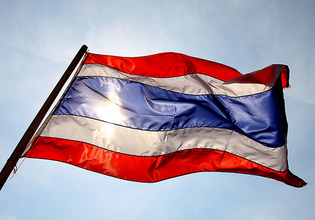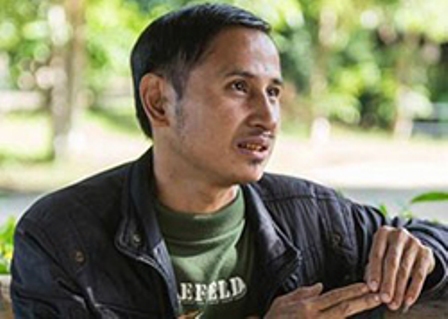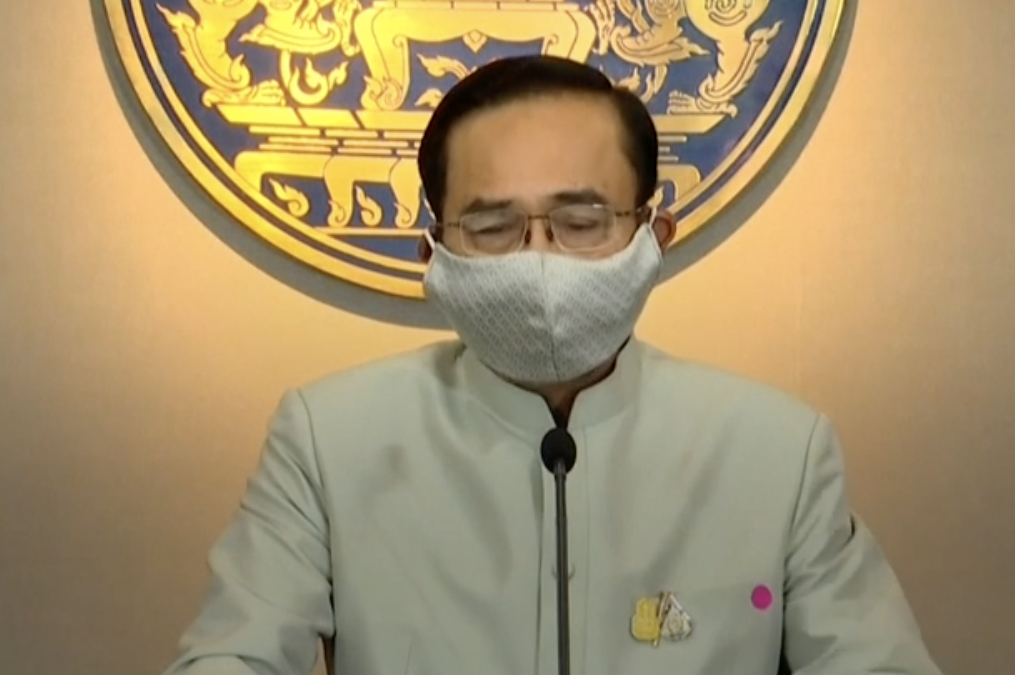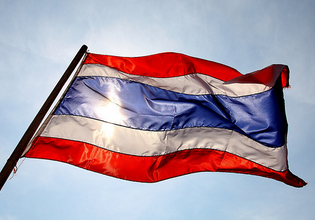
Apr 27, 2020 | News
Today, the ICJ and Lawyers’ Rights Watch Canada (LRWC) jointly submitted a legal brief (amicus curiae) to the Court of Appeal in criminal defamation proceeding against Thai journalist Suchanee Rungmuanporn (Cloitre).
The journalist is being charged after making a post on Twitter highlighting labour rights violations by Thammakaset Company Limited. The post detailed an order by Thailand’s Court of Appeal for Specialized Cases for Thammakaset to provide compensation to its 14 former employees from Myanmar, with the word “slavery” included in the post. This inclusion is the basis for defamation claim.
On 24 December 2019, Suchanee was sentenced to two years’ imprisonment by Lopburi Provincial Court.
The intervention reviews the nature and scope of Thailand’s international legal obligations relating to the right to freedom of expression. It makes clear that the imposition of harsh penalties such as imprisonment has a “chilling effect” on the exercise of freedom of expression, which Thailand is bound to protect pursuant to its international legal obligations. It particularly undermines the work of journalists and human rights defenders seeking to bring to light these violations and whose activities must be protected.
The brief underscores that under international law and standards, criminal sanction involving imprisonment must never be imposed for defamation.
Criminal defamation, under sections 326 of the Criminal Code, carries a maximum sentence of one year of imprisonment, a fine of up to 20,000 Baht (approx. USD 640) or both. Section 328 criminalizes defamation “by means of publication” with up to two years’ imprisonment and a fine of up to 200,000 Baht (approx. USD 6,400).
This case is one of 36 cases brought by Thammakaset against several individuals who have expressed views and conducted advocacy on or released information relating to labour rights violations alleged to have been committed by Thammakaset. These include criminal defamation complaints against human rights defenders, including Mr. Nan Win, Ms. Sutharee Wannasiri, Ms. Ngamsuk Rattanasatiean, Ms. Angkhana Neelapaijit, Ms. Puttanee Kangkun, and Ms. Thanaporn Saleephol.
Download
Legal brief (amicus curiae) to the Court of Appeal in Thai and English.

Apr 24, 2020 | News
On 24 April 2020, the ICJ, Thai Lawyers for Human Rights (TLHR) and the Cross Cultural Foundation (CrCF) made a joint supplementary submission to the UN Human Rights Committee on Thailand’s implementation of its human rights obligations under the International Covenant on Civil and Political Rights (ICCPR).
In their submission, the ICJ, TLHR and CrCF detailed their concerns in relation to Thailand’s failure to implement the Committee’s recommendations, including the ongoing human rights shortcomings of the country’s Constitutional and legal framework; the continued lack of domestic legislation criminalizing torture, other ill-treatment and enforced disappearance; and reports of torture and other ill-treatment. In addition, the three human rights organizations expressed concern over the use of the Emergency Decree on Public Administration in Emergency Situation to combat the COVID-19 outbreak, and measures imposed under the Decree that may constitute a blanket restriction on fundamental freedoms, including the rights to free expression, opinion, information, privacy and freedom of assembly and association, with no opportunity for the courts to review these extraordinary measures.
The organizations’ submission also describes human rights concerns with respect to the following:
Constitution and legal framework
- Head of the NCPO Order No. 22/2561; and
- Head of the NCPO Order No. 9/2562
Extrajudicial killings, enforced disappearances and torture
- continued lack of domestic legislation criminalizing torture, other ill-treatment and enforced disappearance;
- reports of extrajudicial killings, torture, other ill-treatment, enforced disappearances, and the progress and results of investigations;
- the application of security-related laws; and
- threats and reprisals against persons working to bring to light cases of alleged torture, ill–treatment and enforced disappearance.
Download
Thailand-UN-Human-Rights-Committee-Supplementary Submission-2020-ENG (English, PDF)
Thailand-UN-Human-Rights-Committee-Supplementary Submission-2020-THA (Thai, PDF)
Background
On 23 March 2017, during its 119th Session, the Human Rights Committee adopted its Concluding Observations on the second periodic report of Thailand under article 40 of the ICCPR.
Pursuant to its rules of procedure, the Committee requested Thailand to provide a follow up report on its implementation of the Committee’s prioritized recommendations made in paragraphs 8 (constitution and legal framework) 22 (extrajudicial killings, enforced disappearances and torture) and 34 (conditions of detention), within one year of the adoption of its Concluding Observations – i.e., by 23 March 2018.
On 18 July 2018, Thailand submitted its follow-up report to the Committee. The report was published on 9 August 2018.
On 27 March 2018, the ICJ, TLHR and CrCF made a joint follow-up submission to the UN Human Rights Committee. However, since then, there have been several developments that the three organizations wish to bring to the attention of the Committee through this supplementary submission.
The UN Human Rights Committee will review Thailand’s implementation of the prioritized recommendations during its 129th Session, in June/July 2020.
Further reading
ICJ and TLHR, Joint submission to the UN Human Rights Committee, 13 February 2017
ICJ, TLHR and CrCF, Joint follow-up submission to the UN Human Rights Committee, 27 March 2018

Apr 17, 2020 | News
On the sixth anniversary of the apparent enforced disappearance of Karen activist, Pholachi “Billy” Rakchongcharoen, the ICJ repeated its calls for Thailand to bring those responsible to justice and apply appropriate penalties that take into account the extreme seriousness of the crime.
On 23 December 2019, after the Thai Ministry of Justice’s Department of Special Investigation (DSI) in September had located bone fragments which they identified as likely belonging to Billy, eight charges, including premeditated murder and concealing the body, were brought against four officials of Kaeng Krachan National Park, with whom Billy was last seen. However, in January 2020, public prosecutors suddenly dropped seven murder-related charges against the four accused on the basis that there was insufficient evidence to take the cases to trial.
“It is disturbing that after six years the prosecutors could not move forward with the prosecution because the authorities failed to gather evidence to identify the perpetrator for Billy’s murder despite the discovery of bone fragments,” said Frederick Rawski, Asia Regional Director of the ICJ. “Thai authorities should, pursuant to its international legal obligations, continue to gather other direct and circumstantial evidence to prosecute and punish perpetrator with appropriate penalties.”
The four suspects are now facing only a minor charge for failing to exercise their official functions because they released Billy instead of handing him over to the police after they took him into custody in April 2014 for collecting wild honey in the park.
“Thailand needs to implement legislation criminalizing enforced disappearance without delay so that prosecutors have the appropriate tools to prosecute those responsible, and are not forced to bring charges for crimes of lesser gravity,” he added.
Download the statement with detailed background information in English and Thai.
Contact
Frederick Rawski, ICJ Asia-Pacific Director, t: +66 64 478 1121; e: frederick.rawski(a)icj.org
Further reading
Thailand: discovery of “Billy’s” remains should reinvigorate efforts to identify perpetrator(s)
Thailand: continuing delay in the enactment of the draft law on torture and enforced disappearance undermines access to justice and accountability

Mar 24, 2020 | News
As the Thai government moves to exercise its power under the Emergency Decree on Public Administration in Emergency Situation B.E. 2548 (2005) (“Emergency Decree”) to combat the COVID-19 outbreak, the ICJ reiterates its recommendations made since 2005 regarding lawful and proportionate exercise of this power in a manner consistent with Thailand’s obligations under international law.
The ICJ urges the Thai Government to take these recommendations into consideration when imposing any measures to address the COVID-19 outbreak:
- A state of emergency used to justify any permissible derogation from obligations under international human rights law must meet the standard that an emergency “threatens the life of the nation”, as set out in the International Covenant on Civil and Political Rights. Parliament should play an active role in providing oversight.
- Any limitations on or derogation from the exercise of internationally guaranteed rights should be limited in duration, strictly necessary, and proportionate to the specific threat posed.
- Derogating measures may only limit the scope of other rights to the extent strictly necessary to meet a threat to the life of the nation, but they may not suspend the applicability of any right in its entirety.
- This necessity must be continually re-assessed so that the derogating measures apply for the shortest time possible. Certain human rights, including the right to life, the right to life, the freedom from torture or ill-treatment, the essential elements of arbitrary deprivation of liberty and to a fair trial and the right to an effective remedy can never be restricted even in a state of emergency.
- It should be clearly stated which officials have responsibility for implementing the provisions of the emergency law and what their powers and responsibilities are.
- All officials responsible for implementing the law should be explicitly stated to be under the authority of the ordinary law of Thailand, with no immunity for any criminal acts carried out in the exercise of their responsibilities.
- The decisions and actions of officials exercising powers under the emergency law should be subject to review by the courts.
Download the statement in Thai here.

Mar 20, 2020 | News
Today, the ICJ submitted recommendations on strengthening Thailand’s Anti-Strategic Litigation against Public Participation (SLAPP) law to the Ministry of Justice.
The Ministry of Justice is tasked to conduct a “study on the guidelines for development of laws, regulations or measures to prevent SLAPP,” in accordance with Thailand’s First National Action Plan on Business and Human Rights (2019 – 2022) (NAP).
Articles 161/1 and 165/2, which are intended to implement the NAP, entered into force on 20 February 2019 and 21 March 2019. They were introduced to end SLAPP lawsuits or similar forms of harassment through the legal process against any individuals, including human rights defenders. NAP also refers to the power of a public prosecutor under Article 21 of the Public Prosecution Organ and Public Prosecutors Act as another measure to prevent SLAPP lawsuits.
The use of SLAPPs and similar procedures frequently undermine human rights, including freedoms of expression, association and assembly and the right to political participation. These are protected under Thailand’s Constitution and international human rights obligations.
In the letter, the ICJ expressed its concern that these laws were inadequate to prevent harassment through the legal process and SLAPP. The ICJ therefore called for the adoption of a comprehensive stand-alone law, or the amendment of the Civil Procedure Code and the Criminal Procedure Code, to protect human rights defenders and others from harassment through the legal process.
Background
In an effort to give effect to the UN Guiding Principles on Business and Human Rights (UNGPs), on 29 October 2019, Thailand’s Cabinet approved and adopted the First National Action Plan on Business and Human Rights, making Thailand the first country in Asia to adopt the stand-alone NAP.
The NAP sets out plans to be followed by public and private stakeholders to ensure that businesses – from small and medium-sized enterprises to multinational corporations – respect human rights, and that the government fulfils its duty to ensure remedy and reparation in cases of business-related human rights violations.
The Thai government has identified in the NAP its four key priority issues: (1) labour; (2) land, environment and natural resources; (3) human rights defenders; and (4) cross border investment and multi-national enterprises.
NAP has set out several action points aimed at protecting human rights defenders, including:
- to study the guidelines for development of laws, regulations or measures to prevent SLAPP;
- to push for the review, amendment and repeal of relevant laws, mechanisms and protocols to facilitate protection of human rights defenders, for example with respect to witness protection laws;
- to determine or review policies, protocols, procedures and mechanisms to protect human rights defenders, including women human rights defenders, and ensure their safe conditions of work, and to provide trainings for law enforcement agencies to ensure in practice these protection measures;
- to provide trainings for law enforcement officers to widen their knowledge and understanding in enforcing laws on the protection of human rights, for example with respect to the organization of assemblies, and free expression pertaining to human rights, and preventing dishonest lawsuits that attack human rights defenders;
- to provide trainings and enhance capacity of lawyers;
- to urge businesses to ensure that human rights defenders will not be sued merely calling for rights of individuals to be protected;
- to promote the use of reconciliation mechanisms at all levels of the justice system; and
- to increase access to justice of human rights defenders.
However, NAP’s effectiveness is yet to be assessed because it does not have the status of a law, and is merely a resolution by the executive branch of the Thai government. The NAP was adopted in the form of a Cabinet Resolution, which is considered a “by-law” in accordance with section 3 of the Act on Establishment of Administrative Courts and Administrative Court Procedure B.E. 2542 (1999).
Download the letter to the Ministry of Justice in English and Thai.
Further reading
Thailand: ICJ and HRLA express concern about inadequate protections for human rights defenders in draft National Action Plan on Business and Human Rights
Thailand’s First National Action Plan on Business and Human Rights (2019 – 2022)









